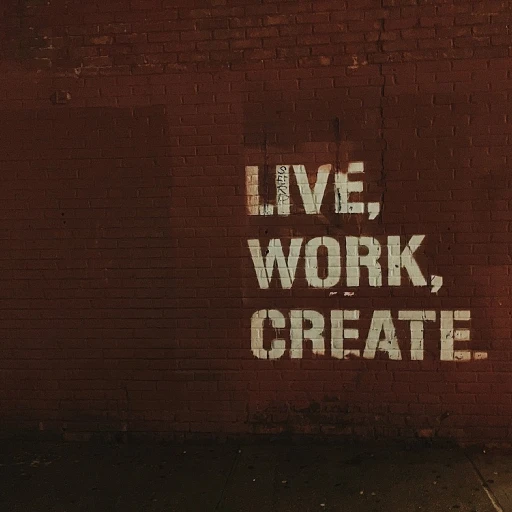
The Basics of Background Checks
Introduction to Background Checks in the Hiring Process
When employers decide to bring a new candidate onto their team, background checks often play an essential part in the hiring process to ensure the individual's profile aligns with corporate standards. These checks are conducted to verify the employment history and other relevant factors, enabling employers to fill job roles confidently and responsibly.
Key Aspects of Background Checks
A background check is an all-encompassing process that scrutinizes various aspects of a candidate’s past. This may include verifying their criminal record, employment history, and even conducting a social media audit. An accurate assessment of these records provides assurance that the candidate fits well with the company’s culture and requirements.
Importance of Employment History Verification
Employers place significant emphasis on verifying a candidate's employment background to ensure authenticity in the candidate's claimed job titles and work history. Validating this information can prevent future issues related to unqualified hires and builds a trustworthy relationship between the candidate and employer.
Ensuring Thorough Background Screening
Companies often utilize the expertise of background screening companies to conduct comprehensive background checks. These professionals assist in meticulously verifying employment history and other critical aspects, which is crucial for hiring the right candidate. For more on this, consider exploring the role of employment verification APIs in modern background checks.
Employment History: What Can Be Revealed?
Unveiling the Depth of Employment History
When it comes to background checks, employment history is a critical component that employers scrutinize closely. This aspect of the background check process involves verifying the candidate's previous job titles, dates of employment, and the nature of their work. Employers aim to ensure that the information provided by candidates aligns with their records, thus confirming the authenticity of the candidate's claims.
Employment history checks can reveal a wealth of information about a candidate's professional journey. This includes:
- Job Titles and Roles: Employers verify the positions held by the candidate to assess their experience and suitability for the role they are applying for.
- Duration of Employment: This helps in understanding the candidate's stability and commitment to previous roles.
- Reasons for Leaving: While not always disclosed, understanding why a candidate left a previous position can provide insights into their professional conduct.
- Performance and Conduct: Some employers may provide feedback on the candidate's performance and behavior during their tenure.
Employment verification is not just about confirming the past; it's about ensuring a candidate's future fit within the organization. Employers are increasingly using advanced methods to verify employment, such as verbal employment verification forms, which streamline the process and enhance accuracy. For more on this, you can explore the role of verbal employment verification forms.
In the broader context of background checks, employment history plays a pivotal role in shaping the hiring process. It helps employers make informed decisions, reducing the risk of hiring individuals with falsified records. As we delve deeper into the trends and challenges of employment verification, it becomes evident that this aspect of background screening is both complex and essential.
Trends in Employment Verification
Current Developments in Verifying Work Background
The landscape of verifying employment history has been evolving with recent trends, focusing on modernizing and streamlining the process for both employers and candidates. As technology advances, accuracy and efficiency in this area have become increasingly crucial. One of the primary trends is the increased use of advanced technology solutions. Employers are turning to automated systems to help manage the influx of data involved in employment background checks. These systems enable employers to quickly verify employment, thereby reducing time and effort spent during the hiring process. Another noticeable trend is the rising emphasis on social media background checks. Employers have begun to look at candidates' online presence, considering it an extension of one's professional persona. This shift signifies an understanding that online behavior can provide insights into a candidate's suitability beyond traditional employment verification methods. Furthermore, the integration of criminal record checks with employment history checks is becoming more prevalent. Employers seek comprehensive information about candidates, aiming for a holistic view that includes both professional background and any potential criminal history. This combination is critical for assessing potential risks associated with hiring. Additionally, there is a conscious move towards enhancing coordination with previous employers. This practice ensures that employment verification is more credible and thorough. By effectively communicating with past employers, a candidate’s work history is substantiated more reliably. As organizations continue to adapt to these trends, the goal remains to make informed, fair hiring decisions that consider all facets of a candidate's background, including employment history and any criminal record. Staying updated with these trends ensures employers and candidates alike are prepared for the evolving demands in employment verification.Challenges in Employment History Verification
Overcoming Obstacles in Employment History Verification
Employment history verification is a crucial part of the background check process, yet it comes with its own set of challenges. Employers often face difficulties in verifying a candidate's work history, which can complicate the hiring process. Here are some common challenges:
- Inconsistent Records: Employment records can sometimes be inconsistent or incomplete. This can happen due to changes in job titles, company mergers, or even clerical errors. Employers need to be diligent in verifying employment history to ensure accuracy.
- Limited Access to Previous Employers: Contacting previous employers for verification can be difficult, especially if the company has closed or if the contact information is outdated. This can delay the verification process and impact the hiring timeline.
- Privacy Concerns: Privacy laws can restrict the amount of information that can be shared during a background check. Employers must navigate these regulations carefully to avoid legal issues while still obtaining the necessary information.
- Verification Costs: The cost of conducting thorough employment background checks can be high, especially for small businesses. Balancing the need for comprehensive checks with budget constraints is a common challenge.
- Reliance on Self-Reported Information: Candidates may provide inaccurate or misleading information about their employment history. Employers must verify this information to ensure they are making informed hiring decisions.
Addressing these challenges requires a strategic approach to background screening. Employers can benefit from using reliable verification services and staying informed about the latest trends and legal considerations in background checks. By doing so, they can enhance the accuracy and efficiency of their employment verification process.
Legal Considerations in Background Checks
Legal Implications in Conducting Background Checks
Navigating the legal landscape of background checks, especially when it involves employment history, is crucial for employers to ensure compliance and protect the rights of both the candidates and their organizations. In hiring processes, understanding pertinent laws can help mitigate litigation risks and ensure a fair hiring process. One of the foundational pieces of legislation guiding background checks, including employment verification, is the Fair Credit Reporting Act (FCRA). This law governs how background checks should be conducted, particularly when handled by third-party agencies. Employers are required to disclose their intention to perform a background check and obtain explicit permission from the candidate. Additionally, the FCRA mandates that if any adverse actions are to be taken based on information revealed in a check—be it criminal history, work history, or other aspects—candidates must be given a chance to dispute the details prior to final hiring decisions. Equal Employment Opportunity laws also play a pivotal role. The EEOC cautions against using background check information discriminatorily, which emphasizes the necessity for employers to evaluate the relevance of the background information to the specific job. Moreover, employment law varies from state to state. Some states have more stringent requirements for background checks, including specific restrictions on the use of criminal records in employment decisions. This requires employers to stay informed about both federal and local legislation to remain compliant. Employers also need to be cautious when considering information found on social media during background screening. Such information can be easily misinterpreted, and privacy laws may protect certain information from being used in employment decisions. Lastly, candidate records should be managed responsibly. Maintaining data privacy and ensuring that records are used and stored securely is critical. This not only aligns with legal obligations but also helps in building trust with candidates, which is essential in a competitive hiring market. In summary, while background checks are integral to verifying employment history and assessing candidate suitability, legal considerations must be at the forefront to protect both parties involved in the hiring process and to uphold best practices in employment verification.Future of Background Checks and Employment Verification
Emerging Trends and Their Impact
The future of background checks and employment verification is evolving with technology advancements, meeting demand for expedited processes while ensuring accuracy. Employers increasingly focus on thorough checks to better assess candidates’ suitability, integrating aspects such as criminal history and employment records.- Technological Integration: Companies are embracing AI and automated software to streamline the hiring process. This shift accelerates background and employment history checks, enabling employers to verify employment more swiftly and accurately.
- Social Media Scrutiny: Social media platforms become a component of candidate screening. Employers assess candidates' history background and social behavior, testing the boundaries between personal and professional lives.
- Compliance with Legal Standards: As laws evolve, employers must stay adept at navigating regulations governing employment background checks. This includes fair access to criminal records and maintaining privacy during the verification process.
- Focus on Accuracy and Transparency: Future trends emphasize accurate records, reducing false positives in criminal background checks and enhancing trust in employment verification.












